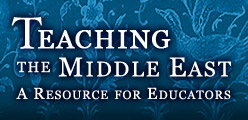What is Ethnicity? What Role Does it Play?
Ethnicity is a term anthropologists use to describe concepts of belonging, usually based on language, shared origins, and shared culture. The term is commonly used by non-anthropologists to describe unchanging aspects of identity, aspects considered essential to understanding how people in group x or group y really ‘are’. Anthropologists, by contrast, stress the great, and often incoherent, variety of criteria that are used in making ‘ethnic’ distinctions (language at one moment, religion another moment, skin color another). They also stress that ‘ethnic’ identities are situational, defined by the context in which people make identity statements. In one situation, a person might want to stress their identity as a Muslim, in another as an Arab, in another as an Egyptian, in yet another, as an Egyptian from the Said, Upper Egypt. Context defines which of these identities are salient at a given moment. This can be as true for entire communities as it is for individuals. Ethnic identities in modern societies are often labels applied by dominant political groups onto subordinate populations. Consider the fact that the ethnic labels people carry, in the Middle East as elsewhere, are often, at root, somewhat derogatory terms used by powerful outsiders: in North Africa, ‘Berber’ (‘barbarian’) is an obvious example. Berbers today generally describe themselves as ‘imazighen’ (‘free men’), or a related word in the many different Berber dialects. Anthropologists also see ethnicity as a political tool, a way of establishing boundaries in changing and often competitive political situations to incorporate or pressurize marginal populations (as today, for example, in Darfur). So, in contrast to everyday usage, the anthropological conception of ethnicity stresses its historical and contextual nature, the unequal power relations that allow certain groups to define others as ethnically different, and the intrinsically political nature of ethnic boundary construction. Ethnic identities are not, then, things that define the unchanging core of people’s being: they are the elusive and constantly changing product of social and political forces. The Norwegian anthropologist Frederik Barth developed important ways of thinking about ethnicity during research in the Middle East, particularly among the Pathans and Baluchis of today’s Pakistan, and in Sohar, a town in Oman, in the Arabian Gulf.

 Martin Stokes
Martin Stokes
Fellow of St. John’s College, Oxford University
Guiding Questions
1. Who gets to decide a group’s identity? How do power dynamics affect these labels?
2. How have dominant and revolutionary political groups used ‘ethnicity?’ Describe the use of ethnicity to alienate and unite various groups of people.
3. Why does ethnicity change in context? How is ethnicity affected by time and place? How is ethnicity changed by immigration?


 Print Page
Print Page

